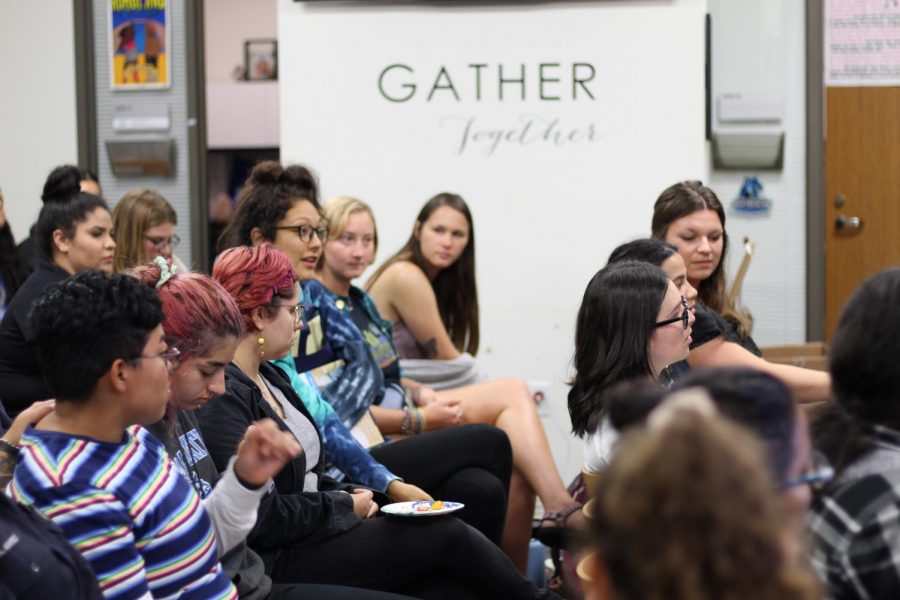GEC encourages sustainable menstruation
Students share personal experiences at Sustainable Menstruation in the Gender Equity Center.
With environmental issues becoming increasingly apparent, CSUSM students are spreading awareness about sustainability and the effects unsustainability has on the environment.
On Sept. 26, the Gender Equity Center held a meeting during U-hour to discuss the issues of sustainable menstruation and the difficulties that many females combat when trying to practice sustainability during menstruation. The purpose of the meeting was to offer a comfortable space where students can talk about the issues at hand
Many of the students shared the same concerns pertaining menstruation, such as the negative image and stigma that men have towards a womens’ menstruation. Some of the students also shared their stories regarding menstruation. Others also questioned how they could keep up with sustainable menstruation and the effects it has on a woman.
Third- year transfer student, Marina Flowers, led the presentation and spoke about the options that women have to successfully maintain a sustainable menstruation.
The meeting was not only designated for women, but it also offered information for trans-gender students who still menstruate. To destigmatize across the gender spectrum, Flowers opened up the conversation towards transgender students in the Gender Equity Center.
“If we don’t destigmatize [menstruation] for the whole spectrum of gender, then trans people are going to be affected,” said Flowers
Last year, Flowers was peer educator who held ecofeminism events for the Gender Equity Center. Flowers was first offered the opportunity to become a speaker through ASI and the Gender Equity Center. Flowers collaborated with the Gender Equity Center and ASI under the Sustainability Projects Fund to help students financially. The program provided 55 students with free feminine products.
“The amount of products that you would buy for a student would equal out to three- quarters of your tuition for one semester,” said Flowers.
The students that received the free feminine products will be a part of a research project that will run until March 2020. The research project is under Put Aa Cup In Iit, which is a foundation that gives out free feminine products to those in need. Put A Cup In It has also helped many women find a menstrual cup that is the right fit for them.
“I found [Put A Cup In It] online, when I was looking at menstrual cups, which is a really cool resource for women,” said Flowers.
Flowers held another sustainable menstruation event on Sept. 31 during Uhour in the Gender Equity Center, which was for the 55 students who are receiving the free feminine products. To find out which type of menstrual cup would be most comfortable for the students, the Gender Equity Center provided a quiz which was generated by Put A Cup In It to figure this out. The Gender Equity Center also provided reusable cloth pads for the students who do not feel comfortable using a menstruation cup.


